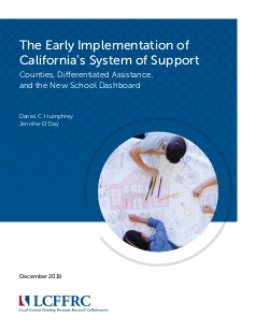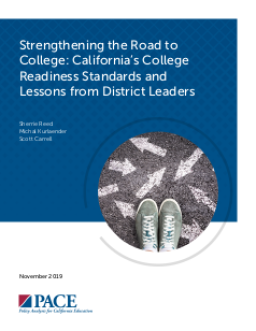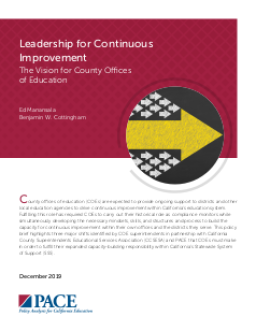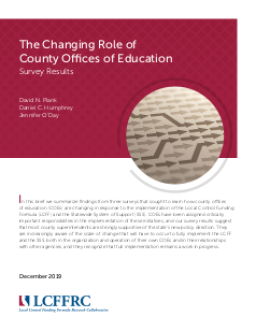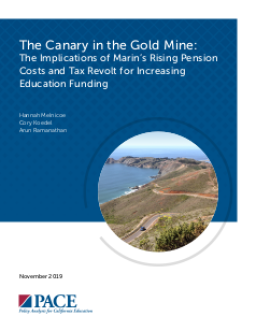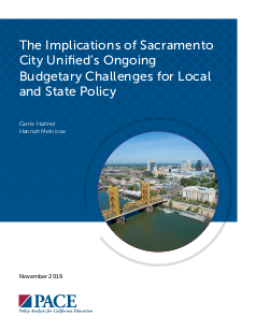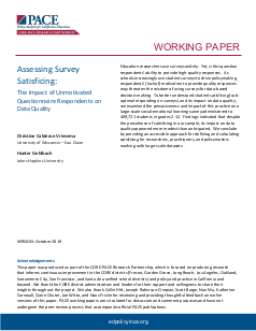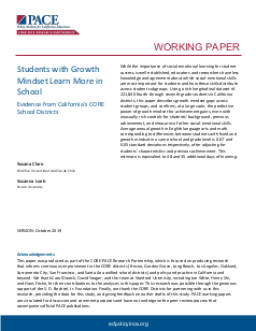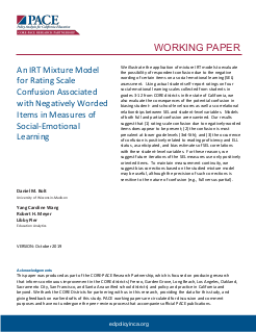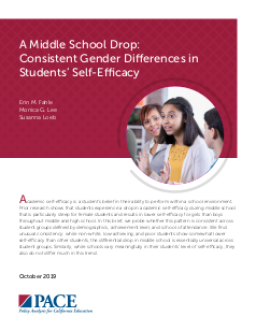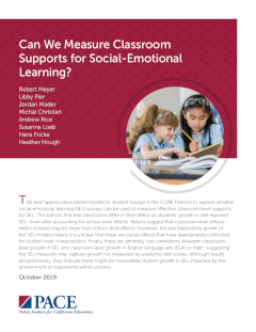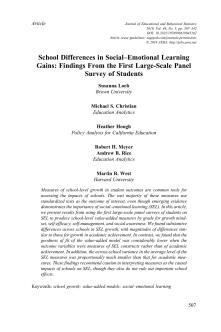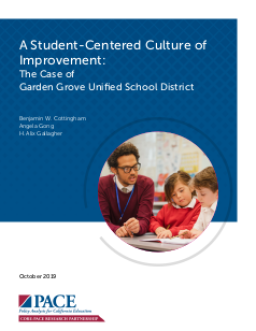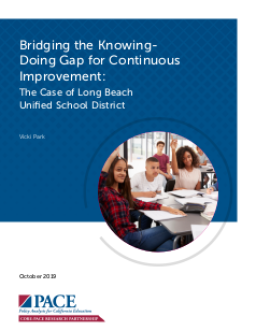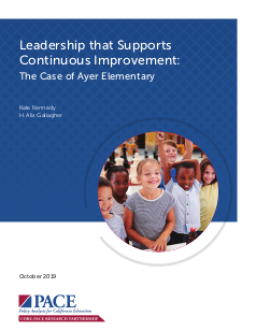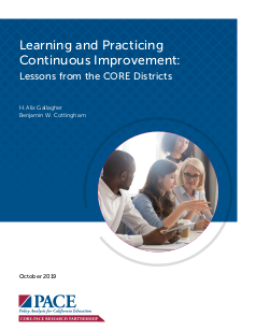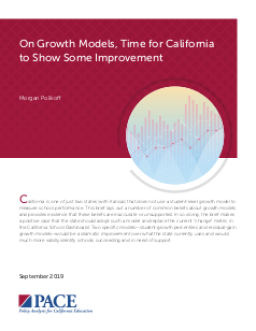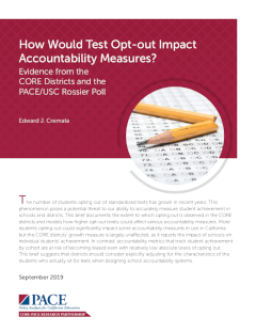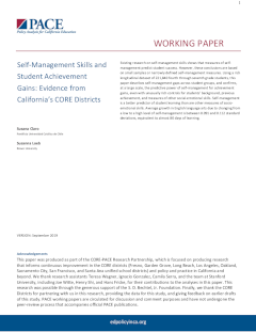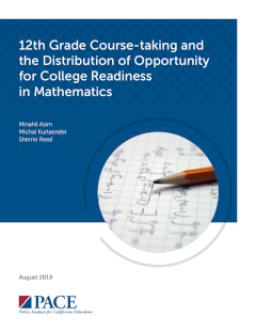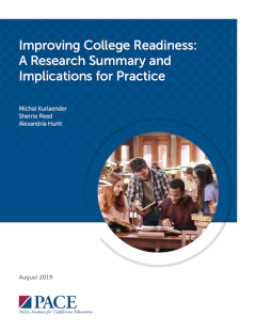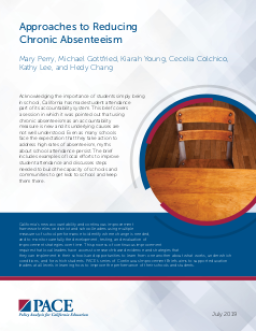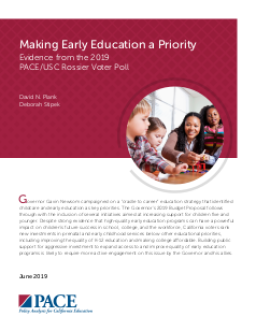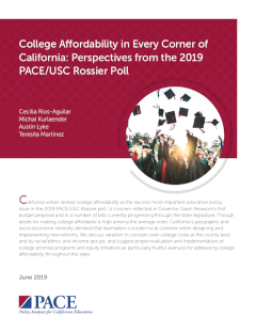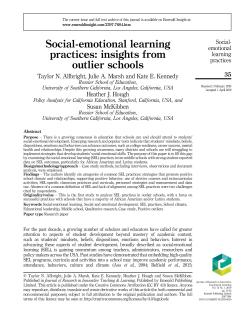Summary
This report examines the early implementation of California's Statewide System of Support, which is designed to empower local educators in determining the best approaches to improvement. While COEs and district officials hold positive views of the system's emphasis on support over compliance, they have concerns about under-resourcing and the effectiveness of the Dashboard measurement tool. The report provides five recommendations to make the System of Support a more comprehensive system aligned with the Local Control Funding Formula.
Summary
Summary
Summary
Summary
Summary
Summary
Summary
Summary
Summary
Summary
Summary
Summary
Summary
Summary
Summary
This report examines how California's education sector is embracing continuous improvement over standards-based reform. The study presents six lessons learned from PACE and CORE Districts' collaboration on the topic, including the complexity of embedding continuous improvement processes into school norms and the need for deliberate steps to build a culture conducive to continuous improvement. The report provides implications for broader continuous work in California and beyond, with three case studies providing more detail on exemplary practices in two districts and one school.
Summary
Summary
The increase in students opting out of standardized tests is a threat to accurately measuring student achievement. This brief examines the effects of opting out in the CORE districts and models how it could affect accountability measures. More opt-outs could significantly impact some metrics, but the growth measure is largely unaffected. Metrics tracking achievement by cohort are at risk of bias, even with low levels of opting out. Adjusting for characteristics of students who take the tests could be a solution.
Summary
Summary
Summary
Summary
Summary
Governor Newsom has proposed initiatives to support children under 5, but California voters prioritize K-12 education and college affordability over early education. Despite evidence that high-quality early education has a powerful impact on children’s future success, more active engagement by the Governor and his allies may be necessary to build public support for expanding access and improving the quality of early education programs.
Summary
College affordability was ranked as the second most important education policy issue in the 2019 PACE/USC Rossier poll. Governor Newsom’s budget proposal and several bills in the state legislature reflect this concern. The diverse geography and socioeconomic status in CA demand local context consideration for designing effective reforms. Variation in concern over college costs is discussed by county and income and racial/ethnic groups. Proper evaluation and implementation of college promise programs and equity initiatives are suggested as fruitful avenues for addressing college affordability.
